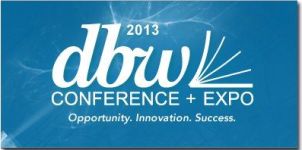 With major bookstore chains struggling to draw foot traffic and ebooks proliferating online, publishers are finding it increasingly difficult to help potential customers discover new authors or explore their midlist titles. In this environment, libraries could be powerful partners, noted a group of panelists during the “Libraries: More Important Than Ever for Discovery” session at the Digital Book World 2013 Conference in New York last week.
With major bookstore chains struggling to draw foot traffic and ebooks proliferating online, publishers are finding it increasingly difficult to help potential customers discover new authors or explore their midlist titles. In this environment, libraries could be powerful partners, noted a group of panelists during the “Libraries: More Important Than Ever for Discovery” session at the Digital Book World 2013 Conference in New York last week.
“Nobody loves debut novelist like a librarian. We love finding books,” said Stephanie Anderson, head of readers’ advisory for Darien Library. Anderson was joined by George Coe, president of Library and Education for Baker & Taylor, Skip Dye, vice president, Library and Academic Sales for Random House Inc., Barbara A. Genco, Manager, Special Projects, Library Journal, and Heather McCormack, Collection Development Manager, 3M Cloud Library.
Libraries are generally very interested in being involved with the early stages of an author’s career, Anderson continued. And many have programs in place that are specifically designed to market debut authors to their patrons.
“My library has a new program called First Look Darien where we pick two or three books a year that are debut novels…and just give it the full press of everything the library has to offer,” she said. “Which, just to review, is a lot of things. I can have our entire readers advisory staff read a book. We have a very large, registered book group program, the most influential readers in our community. We have the author come to visit. We have our local bookstore come sell books. And, we buy an extra 20 copies every time we feature something as a First Look Darien. That’s just an example of one program we’re running.”
These programs, along with simple word-of-mouth recommendations, can help build a local buzz around a title. Replicate that enthusiasm in communities around the country, and it can be enough to sustain a title long after its initial marketing push.
“Maybe a month after a book is published, there’s a period when a book could go either way,” Anderson said. “The author has done [The] Colbert [Report], maybe done a great interview with Terry Gross, gotten a review in the Daily Times, all of these best case scenarios. And those books could still disappear two months after publication. They do all the time.”
Meanwhile, publishers should be aware that long holds lists often generate a momentum of their own for a title, Anderson noted. People are intrigued by long waiting lists for a book, libraries buy more copies to satisfy demand, and patrons who don’t want to wait will buy their own copy.
“I have observed and seen everything that Stephanie just described with regard to holds lists,” McCormack said, noting that publishers are missing out by not having a more robust marketing infrastructure in place to help libraries launch debut novelists or midlisters. “I personally would like to be more involved, in some capacity, with trying to figure out how to sell these names, because Danielle Steele is going to die someday.”
A lack of hard evidence may be one reason that publishers may not be more active in cultivating marketing relationships with libraries. As McCormack noted, many libraries have personally witnessed a title build buzz in the library community before breaking into the bestseller lists, but it’s difficult to quantify.
“I get personally frustrated with there being no mechanism for capturing or measuring the buzz that goes on between librarian and power patron,” she said.
Hard data on this trend is difficult to capture, so Random House actually has staff call libraries, as well as go online and examine holds lists, Dye said. Keeping a finger on the pulse of libraries can be especially important when working to get a new series off the ground, he added, and even when enthusiasm within the library community does not turn a title into a bestseller, it can help make a title a commercial success.
Citing one measure of the library community’s influence, Coe noted that public libraries in the United States circulate three billion transactions per year. But, in a note that should give pause to publishers still reluctant to sell ebooks to libraries, only five percent of titles purchased for adult readers are older than 24 months when they are initially purchased. He added, “libraries don’t buy retrospectively.”


